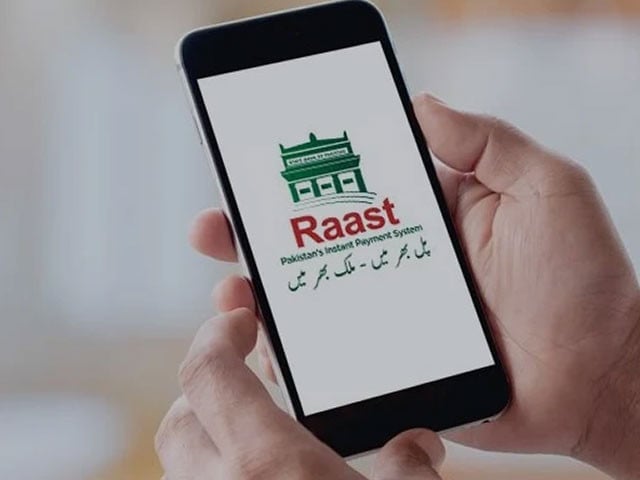Cross-border payments have always been a challenge for individuals and businesses in Pakistan, often involving high fees, slow processing times, and complex procedures. However, with the recent launch of RAAST cross-border payments, this is about to change. The introduction of RAAST for international transfers is set to revolutionize how cross-border transactions are conducted in Pakistan, offering faster, cheaper, and more secure payment options for both remittances and international business.
What Are Cross-Border Payments?
Cross-border payments refer to any transaction where the payer and the payee are based in different countries. These payments are essential for global trade, remittances, and businesses with international clients. Until now, cross-border payments in Pakistan typically involved traditional banking systems or third-party providers, often taking several days to process and coming with high transaction fees.
With the implementation of RAAST cross-border payments, Pakistanis can now experience faster transactions at significantly lower costs. This digital innovation is a major step towards making Pakistan’s economy more competitive on the global stage.
How RAAST Cross-Border Payments Work
RAAST, developed by the State Bank of Pakistan (SBP), was initially introduced for local real-time payments. Recently, it has been expanded to support cross-border payments, making international transactions more accessible and efficient.
Here’s how RAAST cross-border payments function:
- Instant Transfers: Unlike traditional banking transfers, which could take days, RAAST ensures that cross-border payments are processed in real-time. This provides instant access to funds for the recipient.
- Low-Cost Transactions: RAAST’s structure reduces the transaction fees typically associated with international payments, benefiting both businesses and individuals.
- Enhanced Security: By using modern encryption and real-time settlement mechanisms, RAAST ensures that all transactions, whether domestic or cross-border, are highly secure.
- Seamless Integration: RAAST is integrated with Pakistan’s existing banking and digital payment systems, meaning you can initiate cross-border payments directly from your bank or mobile app.
The Benefits of RAAST Cross-Border Payments
There are several key benefits of utilizing RAAST cross-border payments, making it a preferred option for many:
- Faster Remittances
With millions of Pakistanis living abroad, remittances are a lifeline for many families. Traditional money transfer methods often take days to process. With RAAST, remittances can now reach recipients in Pakistan instantly. - Lower Fees for International Transfers
The high cost of international transfers has long been a burden on individuals and businesses. RAAST eliminates many of the fees associated with cross-border transactions, making it more affordable for users. - Boost for E-commerce and International Trade
For businesses engaged in international trade or e-commerce, RAAST offers a streamlined, fast, and secure way to receive payments from global clients. This can help businesses expand their reach and grow their operations globally. - Financial Inclusion
RAAST is designed to be user-friendly and accessible, even for those without traditional banking accounts. This opens up new financial opportunities for unbanked individuals and small businesses that previously had limited access to international transactions.
Impact on Pakistan’s Economy
The launch of RAAST cross-border payments will have far-reaching implications for the economy:
- Increased Foreign Currency Inflows
Pakistan’s economy is highly dependent on remittances. By facilitating faster and cheaper cross-border payments, RAAST is expected to increase the flow of foreign currency into the country, contributing to economic stability. - Support for SMEs and Startups
Small and medium-sized enterprises (SMEs) in Pakistan often face difficulties in receiving international payments due to high fees and slow processing times. RAAST will give these businesses the ability to compete in the global market with a cost-effective payment solution. - Boost in Consumer Spending
Faster access to remittances means that households can spend money more quickly, stimulating local markets and contributing to overall economic growth.
How to Get Started with RAAST Cross-Border Payments
Getting started with RAAST cross-border payments is simple and straightforward:
- Open an Account with a RAAST-Enabled Bank
Check with your bank to see if they are RAAST-enabled. Most of Pakistan’s leading banks now support RAAST services. - Register for RAAST
Once you have a RAAST-enabled bank account, you can register for RAAST services either through your bank’s mobile app or by visiting their online portal. - Start Making Cross-Border Payments
With your RAAST account active, you can initiate cross-border payments using your mobile app or internet banking. Simply enter the recipient’s details and the amount to be transferred. - Enjoy Real-Time Transfers
RAAST ensures that your cross-border payments are processed instantly, with low fees and high security.
The Future of RAAST Cross-Border Payments
The introduction of RAAST cross-border payments is just the beginning of Pakistan’s digital transformation in financial services. The system is expected to expand and evolve, with future updates likely to include even more features aimed at making international transactions more seamless.
The State Bank of Pakistan has announced plans to integrate RAAST with more global payment networks, making it a central hub for international payments. This will further enhance Pakistan’s global financial connectivity, enabling businesses and individuals to operate more efficiently in the global market.
Conclusion
The launch of RAAST cross-border payments marks a new era for Pakistan’s financial ecosystem. Offering faster, cheaper, and more secure international payments, RAAST is a game-changer for both individuals and businesses. As the system continues to evolve, it is poised to play a critical role in boosting remittances, supporting businesses, and driving economic growth in Pakistan.


